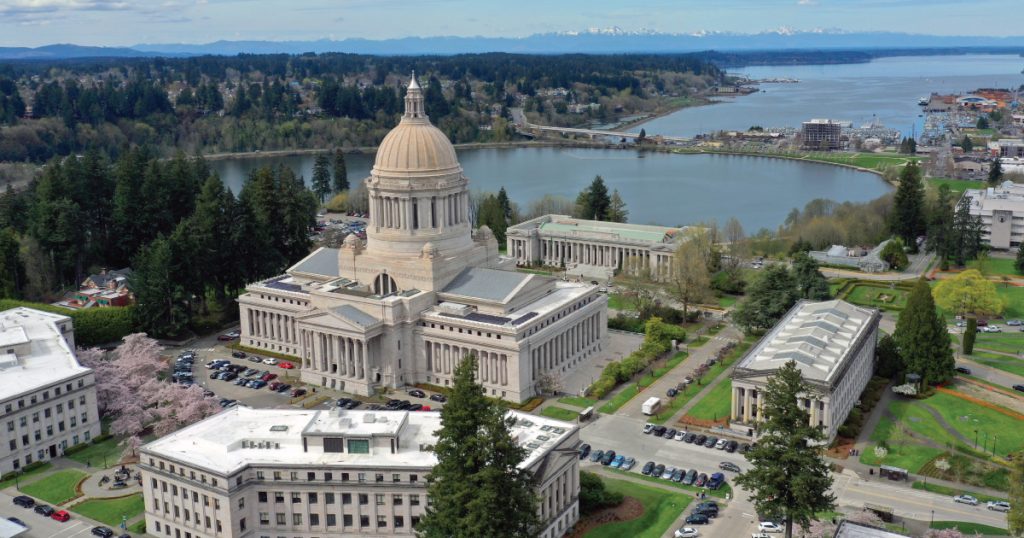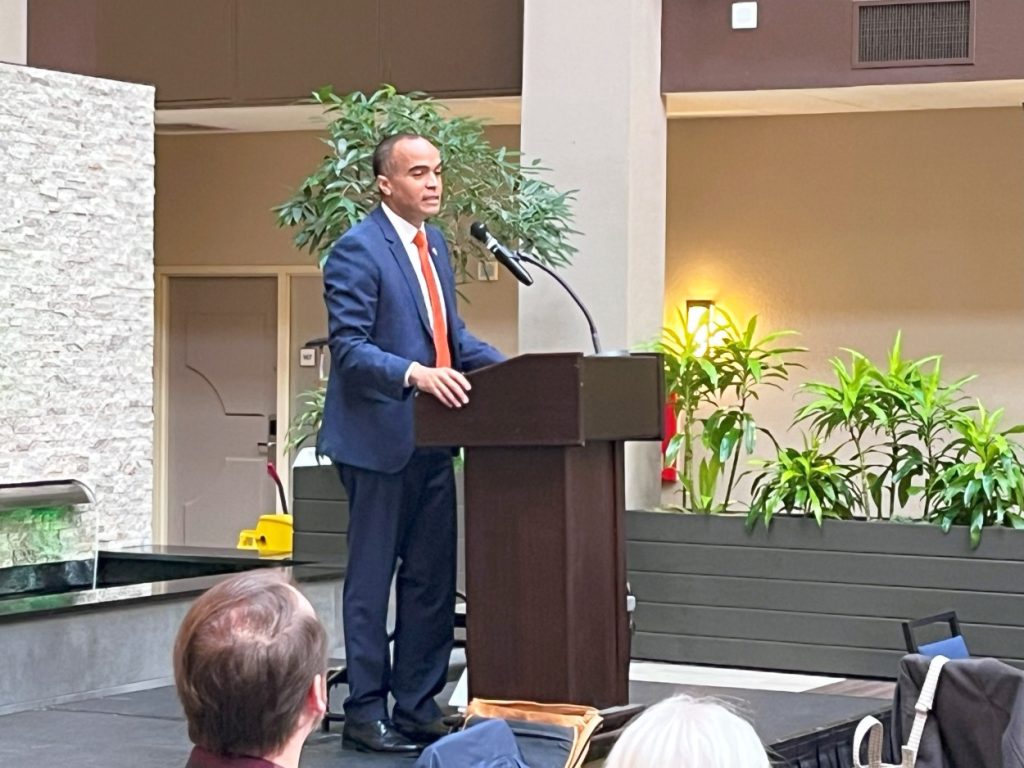OLYMPIA—The Washington Coalition for Open Government (WashCOG) published an update to their special report “Your Right to Know,” that found agencies and local governments in Washington State allegedly obstruct and delay public records requests, fail to maintain, organize, and disclose records, inadequately train their staff on open government policies, and often completely undermine the Public Records Act.

The Your Right to Know report was originally published in February of 2024 but the WashCOG says the erosion of access to public information has only gotten worse three months into 2025.
Voters approved the Public Disclosure Act by initiative in 1972. When passed the act had only 10 disclosure exemptions. Today there are approximately 690 exemptions in the Revised Code of Washington, the report states.
That initiative states: “The people of this state do not yield their sovereignty to the agencies which serve them. The people, in delegating authority, do not give their public servants the right to decide what is good for the people to know and what is not good for them to know.”
In 2024 alone the Legislature passed 11 new disclosure exemptions with even more exemptions being considered this current session. The 2025 legislative session ends on April 27.
The Washington State Attorney General’s Office requested a bill to establish a Blue-Ribbon Committee in 2007 (now the Sunshine Committee), which would review all exemptions to the Public Disclosure Act. However, since its inception, the Legislature has only removed five disclosure exemptions while, at that same time, passing 135 brand new exemptions.
Former Washington Governor Jay Inslee, who vowed to never exercise legislative privilege, appointed former WashCOG President Tony Nixon as the Sunshine Committee’s Chair in 2024, which was the first time an open government advocate had ever held the title.
Even still the Sunshine Committee is struggling to have the impact it was originally enacted to do. The Committee’s meeting on January 31, 2025, was cancelled due to a lack of quorum and so far, during the 2025 legislative session, law makers have made no indication that they’ll be following the Committee’s recommendations regarding exemptions to public records.
Around the time when WashCOG’s report was first published the open government coalition asked all 147 state legislators to take a transparency pledge not to employ legislative privilege – a term used to describe when a law maker asserts they have a state constitutional privilege to allow them to individually withhold or redact records. Only seven legislators took that pledge.
“WashCOG continues to believe this so-called ‘legislative privilege’ is wrong and we are fighting it in court,” wrote Mike Fancher, Board Member with the WashCOG. “Allowing our elected state officials to make laws in secret by withholding their written communications under an undefined claim of ‘legislative privilege’ is irresponsible and dangerous to democracy.”
All seven of the legislatures who took the pledge were honored with the Ballard/Thomspon Award at the WashCOG’s annual breakfast in Bellevue earlier this month. These include Representative and former House Speaker Frank Chipp (D-43), Rep. Paul Harris (R-17), Sen. Mark Mullet (D-5), Sen. Ron Muzzall (R-10), Rep. Tina Orwall (D-33), Sen. Jamie Pedersen (D-43), and Rep. Gerry Pollet (D-46).
A key finding of the WashCOG’s report is that local governments and agencies frequently use delays and “other bureaucratic hurdles” to obstruct requestors. These include lengthy administrative appeals and ambiguous fulfillment dates despite journalists, and citizens alike, relying on timely access to relevant public information.
Under the current PRA, agencies are allowed to estimate how long a public records request will take and they are in no way responsible for upholding their original estimates. WashCOG also said that technology is being more frequently used to automatically destroy records that should have been preserved under the PRA.
For example, some agencies utilize instant messaging channels such as Signal and Teams to relay public information that, they argue, can be deleted without reviewing the records for proper retention. This has resulted in thousands of records being deleted, the report states.
In February 2025, Washington State Governor Bob Ferguson took action to suspend a policy which enabled agencies to delete these instant messaging channels, following a $225,000 settlement against a state agency for destroying public records. The suspension, Ferguson’s office said, while span for six months while the state reviews the policy.
A reason local governments and agencies may take longer fulfilling public records is their inability to adapt to the technological age, WashCOG observed, leading to poorly organized records which cannot be accessed in a timely manner. The PRA, since its inception, makes requirements for agencies to organize and maintain their records.
Back in December the WashCOG joined 17 different media partners in calling on the Washington State Attorney General’s Office to amend its current Model Rules for Public Disclosure, which hasn’t been updated since 2018. These amendments would include requiring agencies to adequately organize and maintain their records in a way that would reduce time spent on searches, reviews and redactions.

Attorney General Nick Brown announced in March, during WasCOG’s annual breakfast, that he was committed to working towards a more transparent, and open, government by both supporting WashCOG’s efforts while also ensuring government workers receive proper open government training, which the coalition’s report found to be the leading cause in issues related to public record disclosure; that and funding.
“My philosophy is that open government is a bedrock for all public service. It is how we build trust in the community. It is how we know how to best serve the public. Being transparent is how the public holds us accountable and moves our work forward,” said Brown. “The government’s committed transparency reflects the responsibility to appeal to the public. It shows how much we believe in our ability to improve people’s lives and how much we believe in this experiment called democracy.”
Snapshots on how agencies performed on the Public Records Act last year
George Erb, Secretary at WashCOG, retired journalist, and Journalism instructor at Western Washington University, compiled a data deep dive into how local governments and agencies performed on the Public Records Act last year.
In those findings Erb observed that requesters encounter more holes in the PRA every year. In the last 10 years Legislative exemptions have increased 38%.
Erb also found that agencies are taking longer and longer to fulfill records requests. Requesters awaiting records in 2019, for example, waited an average of 15 days before “final disposition.” By 2023 the average wait had increase by more than a week, to upwards of 25 days.
The report also found that less and less requesters are taking agencies to court for failure to produce records.
Agencies frequently site financial burdens as the reason why record request wait times have skyrocketed by according to Erb’s report agencies spend less than 0.1% of the annual spending fulfilling records requests.
Between 2018 and 2023 reporting agencies fulfilled an average of 374,773 requests.
According to the Washington State Legislative Audit and Review Committee, U.S. Census Bureau data, and Annual Surveys of State and Local Government Finances, state and local government expenditures for records request costs totaled $102,893,606 in 2022 which is 0.09% of its, more than, $111 billion spending pool.
Erb’s report also found that some agencies take longer than others. For example requesters in the City of Seattle waited twice as long for their request to be fulfilled than those requesting records in the City of Tacoma. Seattle has increasingly exceeded the statewide average by weeks.
In 2023, requesters had to wait an additional 35 days (or five weeks) to receive records from the City of Seattle compared to other agencies statewide.
Another example is the state Department of Transportation compared to the state Department of Corrections. Between 2017 and 2023, the DOT took an average of 18.8 days to close a records request while the DOC took nearly three times as long (52.5 days).
Author: Kienan Briscoe












